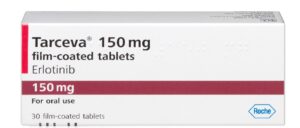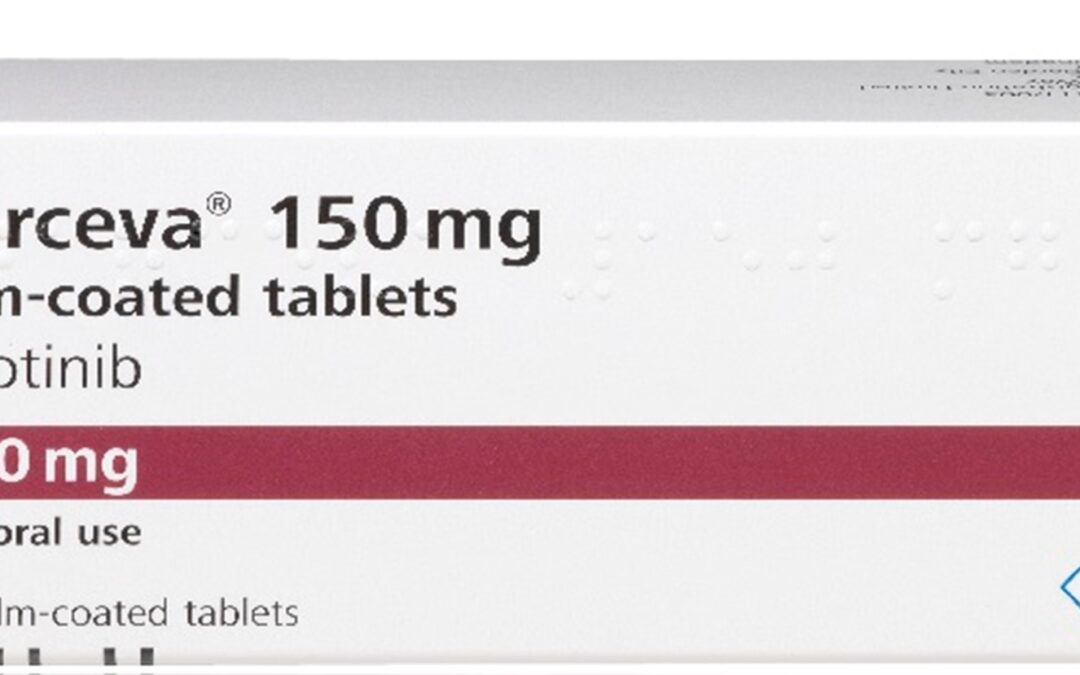 The landmark case took place between F.Hoffman-La Roche Ltd. (hereinafter referred as Roche), a Swiss Multinational Health Care Company & Pfizer, a US based Company on one hand and Cipla Ltd. (hereinafter referred as Cipla), an Indian Multinational Pharmaceutical Company on the other. Pfizer and Pfizer Products, Inc. as joint applicants were granted a patent [Patent Number 196774] for a drug named ‘Erlotinib’. The patented item was introduced into the Indian market by Roche in the year 2006 under the brand name ‘Tarceva’. Meanwhile Cipla claimed of selling generic version of ‘Erlotinib’ under the brand name ‘Erlocip’.
The landmark case took place between F.Hoffman-La Roche Ltd. (hereinafter referred as Roche), a Swiss Multinational Health Care Company & Pfizer, a US based Company on one hand and Cipla Ltd. (hereinafter referred as Cipla), an Indian Multinational Pharmaceutical Company on the other. Pfizer and Pfizer Products, Inc. as joint applicants were granted a patent [Patent Number 196774] for a drug named ‘Erlotinib’. The patented item was introduced into the Indian market by Roche in the year 2006 under the brand name ‘Tarceva’. Meanwhile Cipla claimed of selling generic version of ‘Erlotinib’ under the brand name ‘Erlocip’.
Brief facts of the case are as follows:
- In February 2007, Roche claimed to have a patent for ‘Erlotinib’ and sold the drug under the brand name ‘Tarceva’. In January 2008, Cipla intended to launch a generic version of the drug. This led to infringement between Roche and Cipla.
- The dispute between the parties was based on the compound commonly known as “Erlotinib Hydrochloride”.
- In 2008, Roche’s plea in the Delhi High Court for grant of an interim injunction to restrain Cipla to manufacture, offer of sale, sell and export of the drug ‘Erlotinib’ was rejected.
- On appeal the bench upheld the decision and said that Roche failed to build up a prime facie case of infringement. Thus, the appeal was dismissed with costs at Rs 5 lakhs to be paid to Cipla by Roche.
- After this, the SLP filed by Roche was also dismissed.
- After the final decision of Single Judge by Delhi HC it was held that Roche didn’t had sufficient evidence to prove that Cipla’s brand ‘Erlocip’ infrined it patent ie. ‘Erlotinib’.
- On appeal, the matter was decided by a Division Bench of Delhi High Court.
Issues
The main issues before the Hon’ble Court were:
- Whether Cipla’s product, Erlocip which is Polymorph B of the compound ‘Erlotinib’ infringes the Roche’s patented compound ‘Erlotinib’.
- Whether Roche’s patented compound ‘Erlotinib’ is a valid patent?
Arguments by the parties
- By Plaintiff i.e., Roche
- They claimed that ‘Erlotinib’ is a novel compound and is not a salt, polymorph, etc of any known substance. Hence, Section 3(d) of the Patents Act, 1970 is not applicable.
- They argued that ‘Erlocip’ by Cipla is “Erlotinib Hydrochloride” and claimed that the manufacture of Polymorph B of this compound is in itself a sufficient infringement of Roche’s patent.
- Furthermore, they argued that if a patentee’s rights were not respected then it would be contrary to the public interest of encouraging further research.
- They also contended that while determining the balance of convenience it is reasonable and appropriate to consider the use and accessibility of the invention in the territory, its manufacturing in India isn’t necessary.
By Defendant i.e., Cipla
- Cipla argued that the patent was hit by Section 3(d) of the Patents Act, 1970 as ‘Erlotinib’ was a derivative of a known patent ‘Quinazoline’. They alleged that Roche had not proved that there was “any improved efficacy of the said drug”.
- They further argued that Roche’s product was highly priced. Roche’s tablets were priced around Rs 4800 whereas; Cipla’s tablets cost aound Rs 1600. They contended that this was a matter of life saving drugs therefore it should be made at an affordable and cheaper price to the public at large.
- Furthermore, they argued that Roche didn’t file any data to demonstrate that ‘Erlotinib Hydrochloride’ in patent had a higher therapeutic efficacy.
- They defended that “Erlotinib Hydrochloride” was a mixture of two polymorphs A and B and to get the claimed compound it was necessary to separate both the polymorphs. This defeats the inventive step of the alleged invention and this material information was withheld by Roche.
Judgement
Court relying on various judgements held that:
“In 2015, the Hon’ble Division Bench of Delhi High Court held that Cipla’s product ‘Erlocip’, which is claimed to be a polymorph B form of the compound ‘Erlotinib’, infringes Roche’ patent and affirmed its validity as well. It set aside the Single Judge decision dismissing the suit for injunction filed by Roche. The bench further stated that this compound may exist in various polymorphic structures; however, any such structures will be subsumed within this patent. Therefore, ‘Erlocip’ (Polymorph B) by Cipla will infringe this patent. The judgement laid down several guidelines and steps that should be followed in every infringement of patent suit. It was said that to pass the correct test, Cipla must map its product against Roche’s patent claims. In order to test the obviousness the first step is to see who is a Person of Ordinary Skilled in the Art (POSA) and its characteristics. Further, Polymorph B was rejected because it didn’t show enhanced therapeutic efficacy. The charges alleged by the applicant are in the physical properties and not in the therapeutic efficacy. This amounts to ever greening tendency which has been prohibited by Section 3(d) of the Patents Act, 1970. In the present case the drug was a life saving drug and affects people at large. It was manufactured in India, at a comparatively lower price. The Court further said that Cipla has been unsuccessful in satisfying the tests laid down to establish prime facie that the patent was obvious. Subsequently the Court directed Cipla to render accounts concerning the manufacture and sale of ‘Erlocip’ for the calculation of damages. It however, didn’t grant a permanent injunction against Cipla.”
Cipla then filed a SLP against the decision, which was admitted by the Apex Court in the year 2016 the Court directed to appoint a technical expert and adjourned the matter. After a series of legal proceedings, the Pharma majors finally reached a settlement, withdrawing all pending litigation, including the SLP. This settlement possibly marks the close of the first Pharma patent case in India in the post Trade-Related Aspects of Intellectual Property Rights (TRIPS) era.
By: Runjhun Sharma, School of Law, Mody University
Please contact us at info@origiin.com to know more about our services (Patent, Trademark, Copyright, Contract, IP Licensing, M&A of companies)
Subscribe to YouTube Channel HERE
Join Linkedin Group: Innovation & IPR
Whatsapp: +91 74838 06607




